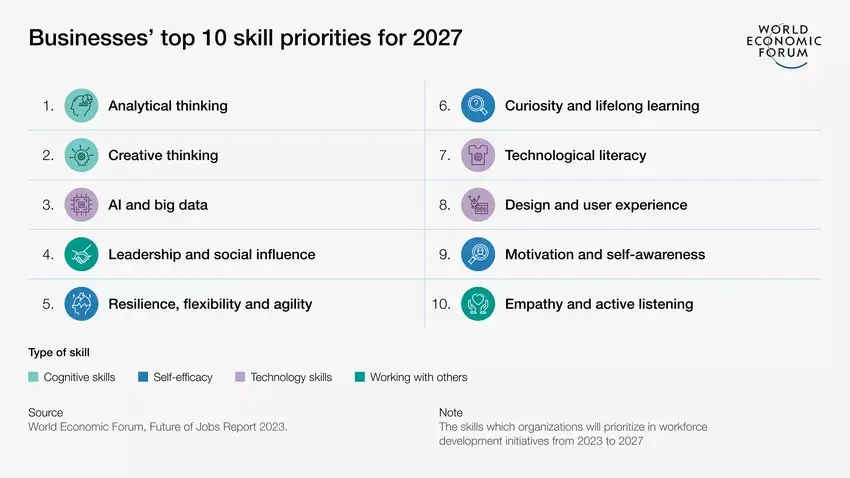The professional world is truly in the grip of “AI fever.” Every company worth its salt is talking about using AI to enhance its products and services or improve productivity and process efficiency. No pitch deck or planning report is considered complete without a generous sprinkling of AI-related buzzwords. Many of these companies promise a future where AI replaces human effort in the production of goods and services—an outcome that has left the modern workforce imagining all sorts of doomsday scenarios about the future of work. AI-ready career
Unsurprisingly, this has sparked anxiety among the white-collar workforce, often referred to as the “laptop class.” The current AI revolution is largely driven by ground-breaking advancements in a group of technologies known as Large Language Models (LLMs), the most famous being ChatGPT. These LLMs are trained on vast amounts of text data, enabling them to predict and generate meaningful text outputs based on the prompts they receive. This capability allows these powerful tools to write code, draft emails, create convincing sales pitches, and even produce high-quality poems, jokes, and stories.
In light of these developments, it is crucial for employees to future-proof their careers and make their roles AI-ready. While AI’s impact spans across job titles and industries, the most significant disruptions are currently seen in programming, legal services, and customer care. This is because LLM-based applications excel at tasks involving language and text, thanks to their extensive training on text data.

Here are some practical tips to navigate AI’s impact on jobs:
Learn to Use AI, Especially Prompt Engineering
A common refrain among AI experts is that AI won’t replace jobs, but employees skilled in AI will replace those without such skills. Technological disruption consistently replaces jobs without destroying them. Those who successfully adapt to these transitions benefit the most. Enrol in AI courses or integrate AI into your work. Starting and persisting on the AI learning journey is the best way to ride the AI wave.

Develop Skills Like Critical Thinking and Storytelling
Although AI is advancing rapidly, it still falls short of human capabilities in areas like critical thinking and storytelling. The modern workplace has long valued employees with soft skills such as analytical reasoning, creative problem-solving, and storytelling over those who merely complete tasks. This edge will become even more pronounced as AI commodifies many technical skills. By incorporating AI into your routine, you’ll have more time to leverage these soft skills to meet organisational needs.
Shift to Less Repetitive, More Strategic Roles
Repetitive desk jobs have always been prime targets for AI-led automation. Middle managers and department heads aim to improve team efficiency and cost-effectiveness, and AI offers the biggest productivity boost in years. Transitioning from repetitive, process-based roles to strategic positions requiring interpersonal skills can make your career more resilient to AI disruption.

In a Gold Rush, Sell Shovels
AI hype is at an all-time high, with 82% of company executives planning to increase their AI usage beyond simple use cases this year, according to a study from IBM. A prudent strategy would be to join teams building AI applications or infrastructure for internal or external clients. Agentic AI, a rapidly growing subfield, involves developing AI agents that automate workflows—an area worth exploring to future-proof your career.
Embrace and Adapt to AI
When used as a tool, AI can significantly boost productivity. For instance, AI coding assistants like Copilot have been shown to improve junior developer productivity by up to 27% and senior developer productivity by up to 16%, according to a study by economists from MIT, Princeton, and the University of Pennsylvania. When AI complements human skills, the results can be extraordinary. Employees with language barriers can now produce work on par with native speakers, and managers can complete presentations in a fraction of the time, freeing them to focus on high-priority initiatives. Leveraging AI can exponentially increase productivity and effectiveness, making it essential to embrace AI in your work. AI-ready career
Read more: How an AI tool is predicting health risks in aged care




